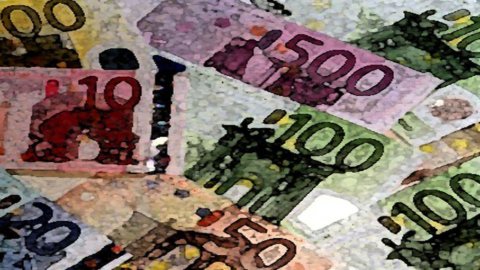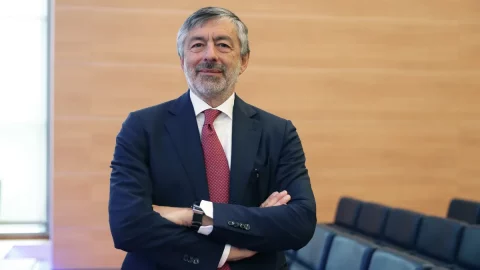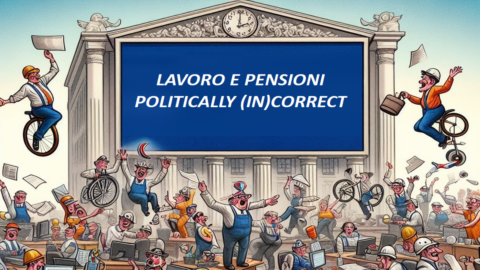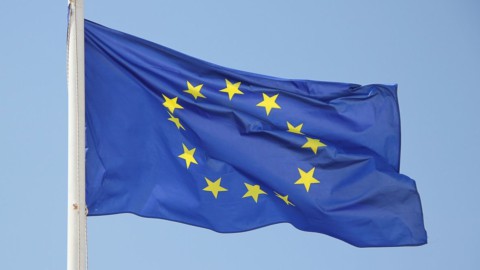The "single party of public spending" is back stronger than before, precisely that old party to which Berlusconi and Bersani now adhere, but also many grillini and above all the media that push an increasingly fearful public opinion to request interventions government of all kinds to save businesses from bankruptcy, pensioners from extreme poverty, young people from the need to emigrate to look for work. Objectives that are just and shareable, but which a further expansion of public spending would not only fail to remedy, and indeed in all probability, within a short time, would further aggravate.
No one remembers anymore that the 2011 crisis was triggered precisely by the push that emerged within the Berlusconi government to increase public spending after the electoral defeat in the spring regional and municipal elections. No one bothers to evaluate that to avoid bankruptcy the Monti government was forced to launch emergency fiscal measures that were very painful for the citizens and that, despite having avoided the Greek drift, they have not managed to overcome a heavy recession. No one remembers the analyzes and debates that took place in those months regarding the role of the public sector as the ball and chain of growth, as a mad machine of waste and robbery that drains the country's resources, mortifying investments and therefore the potential for a healthy development.
Berlusconi's eight programmatic points alongside Bersani's eight points, to which are added various declarations by trade unionists and exponents of the productive world, give a complete picture of the now successful consolidation of the "single party of public spending". It starts with the revision of the IMU and the repayment of what was paid last year, the full repayment of the debts of the PA to businesses (which many commentators call for some reason "refunds"), the settlement of redundancies and the need for new funds for layoffs, up to the financing of public works in small municipalities and the support of research expenses, as well as the cut in Irap and the exemption from social security contributions for new hires. At least 10-15 billion would be needed for all these measures, without considering the reform of the Irpef which was promised by the Pdl and the League even during the electoral campaign. Where do you get this money? Bersani does not say so, while Berlusconi thinks they could come from cutting the costs of politics, starting with the abolition of public funding for parties.
But the costs of politics do not only concern the salary of parliamentarians or regional councilors (the latter already cut by the Monti government), but all the waste that lurks in a mammoth, opaque, and inefficient public machine. And therefore, to obtain real results from cutting costs, it is necessary to reform the entire state system, redesign the powers of the Regions, abolish the Provinces, merge the smaller municipalities, above all insert new accounting, administrative and control procedures for all the various branches of the administration where there are cases of public bodies that do not even keep their accounts in order. Not only that, but we need to bring order to the forest of public companies, especially those controlled by local authorities, which are an inexhaustible source of waste or patronage arrangements. A vast program that requires constitutional changes and a long process of reorganizing bureaucratic practices, without which the necessary transparency will not be obtained and it will not be possible to distinguish waste from necessary and useful expenses.
Then there is the intolerance towards fiscal oppression. Indeed, for taxpayers, the burden of the taxman has reached unbearable levels both due to the amount of income taken away from the public sector and the cumbersome payment procedures. So now the revolt turns against Equitalia its methods and its exaggerated sanctions or against the absurd reversal of the burden of proof that, at the very least, we are all guilty unless we can prove we are innocent. The PDL champions these fights against the taxman, forgetting that Equitalia, its heavy penalties, and its operating methods were created by Tremonti. But now everyone is afraid of bank account checks and the income meter, so the fight against tax evasion takes a back seat (so much so that it is no longer mentioned in the TV debates) while only the pitiful case of the entrepreneur forced to close stands out. shop for the arrival of a heavy briefcase from Equitalia.
In the 16 points elaborated by Bersani and Berlusconi, there is absolutely no indication of state reform and the need to cut public spending. Not only that, but not even a word is said about the possibility of quickly selling part of the assets of the state or local authorities. Yet precisely to pay off debts to companies, the main road, the one that any company is forced to follow when it is too much in debt, is precisely the sale of part of its assets. Funds could be created in which to put some non-productive state property or merge various companies of local authorities and place their shares on the market. In short, debts are paid by selling the assets and not making other debts, perhaps due to a person other than the one responsible for the debt. Just as in the program of the two major parties, there is no idea of how to increase the competitiveness of our production system in order to reactivate effective growth of the economy and create real and stable jobs.
A month and a half has passed since the elections and we are still without a government. Everyone appears to be rightly concerned. The Pdl, despite having campaigned against the communist danger, is anxious to form a government together with Bersani and is trying to demonstrate that its program is not all that different from that of the Pd. In fact, the two parties seem to agree perfectly on expanding public spending. And if one prefers a tax reduction and the other a strengthening of welfare, don't worry, the two requirements can easily be added together! Who will pay? Everyone says they will go to Brussels to bang their fists on the table or maybe to Berlin to kick Merkel. Or maybe they think that in the end the Euro will fall apart and therefore those who have many debts will be able to repay them in devalued currency thus rubbing savers. Or it will be inevitable to rush to cover the new holes in the state budget with a new tax, certainly a robust capital one, since there is now very little left to tax on income. So will the PDL, so eager to make a Governissimo, be ready to vote for a patrimonial of 5 or 10% of the wealth of Italians?
We are in a dangerous political stalemate. But even more worrying is the cultural confusion that seems to have invested the ruling class of this country where everyone is trying to grab some immediate benefits and no one is able to have at least a medium-term vision of where we want to go. In this situation, how will it be possible to restore that "confidence" which is a fundamental ingredient for setting both investments and consumption in motion?
In this chaotic context, at least one voice capable of calling political forces to coherence would be appropriate, indicating the negative consequences of apparently "social" measures, but, if not managed in the right way, could lead to extremely negative consequences for the same classes that would like to protect. And this should be the role of Monti's party, which instead mingles with a feeble and useless voice with the chorus of those who want the Grand Coalition, without even forcefully outlining a credible recovery and relaunch program far from the demagogic tirades of the other two big parties. In this way, Civic Choice, which was the bearer of a project for the recovery of Italy based on reforms and not on the return to the old vices of Italian parties based on easy spending and on the transfer of the consequent burden of debt onto the shoulders of children and grandchildren, abandons its original inspiration, to settle for a few ministerial stools. In certain moments you need to have the courage to wage a coherent opposition battle. The facts, unfortunately, will very soon prove who was right!





